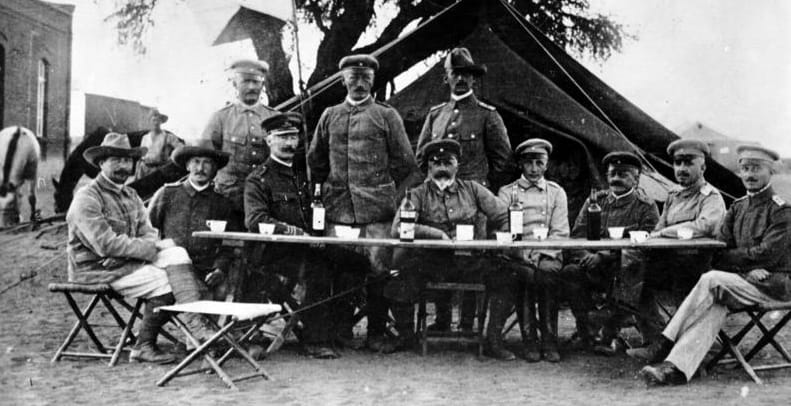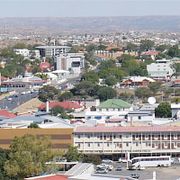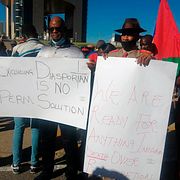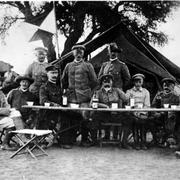
Tyskland erkänner folkmord i Namibia – ger bistånd
Det tyska kolonialstyret begick folkmord i det som i dag heter Namibia under början av 1900-talet. Det erkänner nu den tyska regeringen för första gången, rapporterar flera medier.
”Vi kommer nu officiellt att benämna händelserna för vad de från dagens perspektiv är: Folkmord”, säger utrikesminister Heiko Maas i ett uttalande.
Tiotusentals människor ur herero- och namafolken dödades i det som då hette Tyska Sydvästafrika mellan 1904 och 1908. Den tyska regeringen lovar nu att ge Namibia 1,1 miljarder euro i bistånd – pengar som främst ska gå till ättlingar till herero- och namafolken.
bakgrund
Folkmordet i Namibia
Wikipedia (en)
The Herero and Namaqua genocide or the Herero and Nama genocide was the first genocide of the 20th century, waged by the German Empire against the Herero (Ovaherero), the Nama, and the San in German South West Africa (now Namibia). It occurred between 1904 and 1908.
In January 1904, the Herero people, who were led by Samuel Maharero, and the Nama people, who were led by Captain Hendrik Witbooi, rebelled against German colonial rule. On January 12, they massacred more than 100 German men in the area of Okahandja, though sparing women and children. In August, German General Lothar von Trotha defeated the Ovaherero in the Battle of Waterberg and drove them into the desert of Omaheke, where most of them died of dehydration. In October, the Nama people also rebelled against the Germans, only to suffer a similar fate.
Between 24,000 and 100,000 Hereros, 10,000 Nama and an unknown number of San died in the genocide. The first phase of the genocide was characterised by widespread death from starvation and dehydration, due to the prevention of the Herero from leaving the Namib desert by German forces. Once defeated, thousands of Hereros and Namas were imprisoned in concentration camps, where the majority died of diseases, abuse, and exhaustion.In 1985, the United Nations' Whitaker Report classified the aftermath as an attempt to exterminate the Herero and Nama peoples of South West Africa, and therefore one of the earliest attempts at genocide in the 20th century. In 2004, the German government recognised and apologised for the events, but ruled out financial compensation for the victims' descendants. In July 2015, the German government and the speaker of the Bundestag officially called the events a "genocide". However, it has refused to consider reparations. Despite this, the last batch of skulls and other remains of slaughtered tribesmen which were taken to Germany to promote racial superiority were taken back to Namibia in 2018, with Petra Bosse-Huber, a German Protestant bishop, describing the event as "the first genocide of the 20th century".
Omni är politiskt obundna och oberoende. Vi strävar efter att ge fler perspektiv på nyheterna. Har du frågor eller synpunkter kring vår rapportering? Kontakta redaktionen


